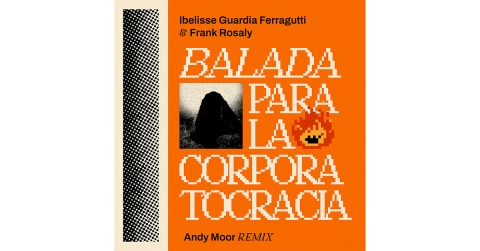Nonesuch releases composer Steve Reich’s album Radio Rewrite on September 30, 2014. The album features the first recording of the 2012 title piece, which references two songs by Radiohead and is performed by Alarm Will Sound led by Alan Pierson; Electric Counterpoint (1987), performed by Radiohead guitarist Jonny Greenwood; and Piano Counterpoint, a 2011 transcription by Vincent Corver of Reich’s 1973 Six Pianos, performed by pianist Vicky Chow. Steve Reich and Musicians join Philip Glass and his Ensemble for three performances for the Nonesuch Records at BAM 50th anniversary celebration; Alarm Will Sound also performs two concerts as part of the series, including Radio Rewrite.
Nonesuch releases Pulitzer Prize–winning composer Steve Reich’s album Radio Rewrite on September 30, 2014 (in the UK, October 6). Co-commissioned for and recorded by Alarm Will Sound, the title piece references two songs by the English band Radiohead. Alan Pierson conducts this premiere recording of Radio Rewrite, which was composed in 2012. The album also includes recordings of Electric Counterpoint (1987) and Piano Counterpoint, which is a 2011 transcription by Vincent Corver of Reich’s 1973 Six Pianos; the works are performed, respectively, by Radiohead’s guitarist, Jonny Greenwood, and pianist Vicky Chow, who is a member of the Bang on a Can All-Stars. Radio Rewrite is available to pre-order now in the Nonesuch Store.
In addition to his usual busy performance schedule, Reich and his ensemble, Steve Reich and Musicians, join his longtime friend, colleague, and labelmate Philip Glass and his Ensemble for three performances at the Brooklyn Academy of Music next month as part of the Nonesuch Records at BAM 50th anniversary celebration; Alarm Will Sound also performs two concerts as part of the BAM series, including Radio Rewrite (details below).
Reich says of his new piece: “Over the years composers have used pre-existing music (folk or classical) as material for new pieces of their own. Radio Rewrite, along with Proverb (Perotin) and Finishing the Hat—Two Pianos (Sondheim), is my modest contribution to this genre.” He continues, “Now, in the early 21st century, we live in an age of remixes where musicians take audio samples of other music and remix them into audio of their own. Being a composer who works with musical notation I chose to reference two songs from the rock group Radiohead for an ensemble of musicians playing non-rock instruments: ‘Everything in Its Right Place’ and ‘Jigsaw Falling into Place.’”
Reich and Greenwood met in Krakow in 2010 during a festival of Reich’s music, where Greenwood gave a performance of Electric Counterpoint that its composer liked very much. (Greenwood has since performed it many more times, including during a London tribute to Nonesuch’s 50th anniversary at the Barbican.) Reich says, “When I returned home I made it a point to go online and listen to Radiohead’s music and the two songs mentioned above stuck in my head. It was not my intention to make anything like ‘variations’ on these songs, but rather to draw on their harmonies and sometimes melodic fragments and work them into my own piece. As to actually hearing the original songs, the truth is—sometimes you hear them and sometimes you don’t.”
Electric Counterpoint was commissioned by BAM for guitarist Pat Metheny. It is the third in a series of pieces (first Vermont Counterpoint in 1982 for flutist Ransom Wilson followed by New York Counterpoint in 1985 for clarinetist Richard Stolzman) with a soloist playing against a pre-recorded tape of themselves. In Electric Counterpoint the soloist pre-records as many as ten guitars and two electric bass parts and then plays the final eleventh guitar part live against the tape.
Reich says Piano Counterpoint “is an arrangement of Six Pianos in which four of the six piano parts are pre-recorded and the last two are combined into a more virtuosic single part played live. For these last two parts to be played by a single pianist it was necessary to move some of the melodic patterns up an octave giving the piece an increased sparkle and intensity. The amplification of the live player along with the pre-recorded playback adds additional electricity. Combined with the practicality of needing only a solo pianist, this arrangement can be heard as improving on the original.”
---
Legendary composers Philip Glass and Steve Reich—both instrumental to the origination of American minimalism— have rich histories at BAM and on Nonesuch Records. For the first time in more than 40 years, Glass and Reich reunite on stage, joining their respective ensembles along with composer-pianists Nico Muhly and Timo Andres, Synergy Vocals, and others for a three-program retrospective of their works.
September 9: Four Organs (Reich); the CIVIL warS–Cologne, excerpt (Glass); Music in Twelve Parts, parts 1 & 2 (Glass); Akhnaten, Act 1, Scene 1: Funeral of Amenhotep III (Glass); Music for 18 Musicians (Reich).
September 10: Four Organs (Reich); Drumming (Reich); Music in Similar Motion (Glass); In the Upper Room, Dance IX (Glass); Einstein on the Beach, Act 4, Scene 1: Building (Glass); Powaqqatsi, Mosque and Temple (Glass); Koyaanisqatsi, The Grid (Glass); The Photographer, Act III (Glass).
September 11: Clapping Music (Reich); WTC 9/11 (Reich); Sextet (Reich); Music in Similar Motion (Glass); Glassworks; Floe, Façades, and Rubric (Glass); Symphony No. 1 “Low,” II. Some Are (Glass); Einstein on the Beach, Act 4, Scene 3: Spaceship (Glass).
Hailed by the New York Times as “the very model of a modern music chamber band,” Alarm Will Sound gives two distinctive concerts, performing music by living composers associated with Nonesuch. The first evening features the music of John Adams, including Son of Chamber Symphony, Chamber Symphony, Scratchband, and an arrangement of Hoodoo Zephyr. The second evening includes Steve Reich’s Radio Rewrite, Donnacha Dennehy’s Grá agus Bás, and Tyondai Braxton’s Fly By Wire.
- Log in to post comments



